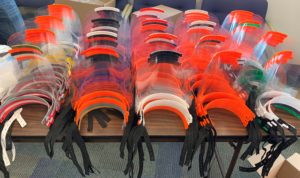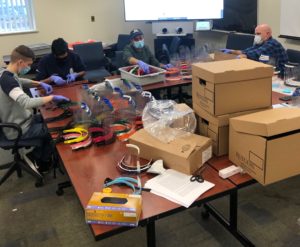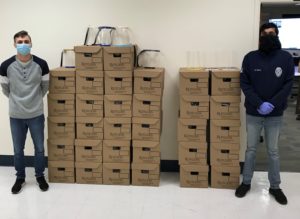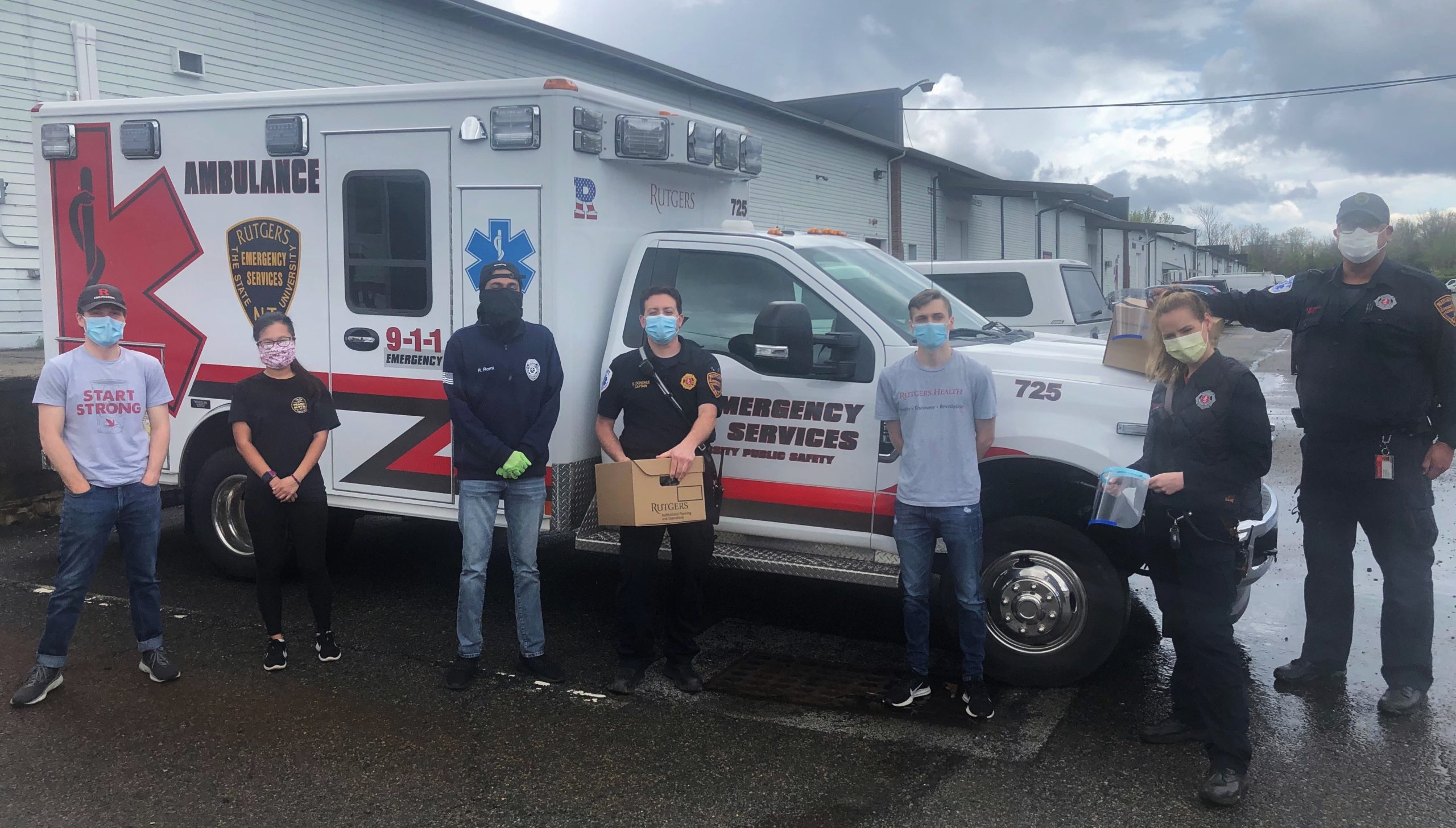The newly formed Rutgers Global Health Institute Student Council is responding to the COVID-19 pandemic by initiating local projects to offer support and creating partnerships to amplify their impact.
A campaign led by graduate student Jack Hemphill and the student council’s Career Pathway Awareness Committee is underway to collect, produce, and donate items that are in short supply during this public health crisis. For health care workers, that means personal protective equipment (PPE) that will minimize their risk of infection. For members of the Middlesex County and Rutgers communities who are struggling to feed and care for themselves and their families, nonperishable food items and personal hygiene products are in demand.
Items Being Collected by Student Council
- 3D printing material for face shields – transparencies, acrylic sheets, PETG filament, PLA filament
- PPE – N95 respirator masks, surgical face masks, disposable gowns, gloves, goggles
- Food items – canned foods, cooking oils, pasta, rice, peanut butter, crackers
- Personal hygiene products – deodorant, shampoo, soap, hand sanitizer, cleansing wipes, menstrual pads, socks, underwear
View donation flyer »
As committee co-chair, Hemphill has formed partnerships within and beyond Rutgers in order to develop the donation campaign. The committee is working with Rutgers Makerspace, Rutgers Environmental Health and Safety, Raritan Valley Community College (RVCC), Rotaract clubs of Rutgers and RVCC, Robert Wood Johnson Medical School (RWJMS) HIPHOP Promise Clinic, Rutgers University Police Department community service officers (CSO), Rutgers Health, RWJBarnabas Health, Rutgers Student Food Pantry, and MCFOODS.
“Global health starts at home. As students and aspiring global health practitioners, I feel it is our duty to tackle these issues head-on within our own backyard. If we can improve the health of our community members, we can learn and have an even greater impact around the globe,” says Hemphill, who is pursuing a master of health administration degree at the Bloustein School for Planning and Public Policy. While he was an undergraduate student at Rutgers’ School of Arts and Sciences, he was a leader in the community service officers (CSO) student security division and a board member for Rutgers Rotaract Club, a service organization for young adults that is affiliated with Rotary International.

Approximately 2,000 face shields have been produced and donated since the campaign began in April.
Using 3D Printing to Produce PPE
Because of the nationwide shortage of PPE for health care workers, the committee has been supporting local efforts to use 3D printing technology to create face shields. They are collecting raw materials donated by people and organizations throughout the region and delivering the supplies to 3D printing labs at Rutgers and RVCC. There, volunteers are using 3D printers to create components of the face shields, which health care workers wear along with masks and goggles to protect their faces and minimize exposure to the virus.
Committee members and volunteers, including university safety officer Alex Ruiz and current and former Rutgers CSOs, then assemble, package, and deliver the face shields and other donated PPE to health care personnel, such as emergency services staff at Rutgers and emergency department doctors at Robert Wood Johnson University Hospital.

Volunteers assemble and package the face shields for delivery to local health workers.
Approximately 2,000 face shields have been produced and donated since the campaign began in April. Rutgers Global Health Institute core faculty member Vicente Gracias, surgery professor at RWJMS and senior vice chancellor for clinical affairs at Rutgers Biomedical and Health Sciences, has been instrumental in the committee’s efforts to support local health care workers’ needs.
Addressing Vulnerable Residents’ Basic Needs
The donation campaign also is helping to fill empty shelves at local food pantries and to provide personal hygiene products to patients of HIPHOP Promise Clinic.
Rutgers Student Food Pantry and MCFOODS, which battles food insecurity throughout Middlesex County, are experiencing increased demand. Unemployment, stay-at-home orders, grocery store shortages, and inconsistent access to food assistance programs are contributing factors.
The health clinic serves New Brunswick’s poorest residents and is run by RWJMS medical students under the supervision of institute core faculty member Karen WeiRu Lin, professor of family medicine and community health and assistant dean for global health. The medical students are collecting items such as deodorant, cleansing wipes, menstrual pads, socks, and underwear and offering them to the clinic’s patients, along with routine medical care and advice to help protect them during the pandemic.

Jack Hemphill (left) and Rutgers community service officer Rafid Romi prepare to deliver assembled face shields.
To support the donation campaign, Hemphill suggests sharing the flyer with others and contacting him directly (jmhemphill514@gmail.com or 609-536-5052) to discuss current needs and to make arrangements for pick-up of items.

